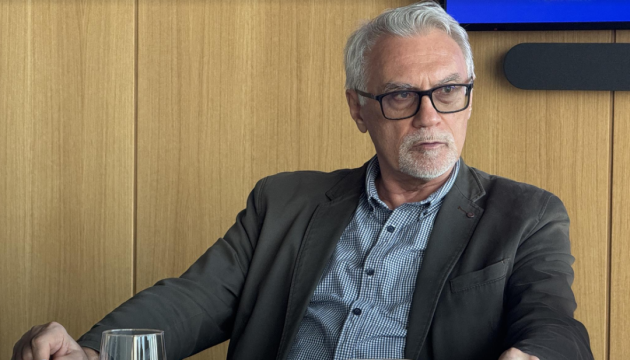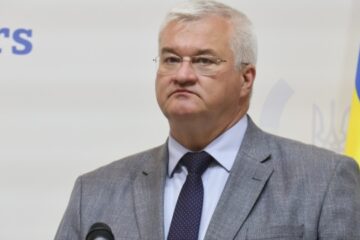
An important positive outcome of Poland’s EU presidency for Ukraine was the approval of a substantial security package expected to boost military aid to Ukraine, as well as the agreement on the 18th package of sanctions against Russia on the final day of Poland’s term.
Andrzej Rudka, head of the Ukraine cooperation group at the Polish employers’ organization Confederation Lewiatan and an advisor to the Polish EU presidency.
According to Rudka, downsides of Poland’s presidency included the failure to open the first negotiation clusters on Ukraine’s EU membership, as well as the non-extension of the preferential trade regime between Ukraine and the EU after June 5, which was initially introduced in 2022.
He noted that despite Poland’s efforts and hopes, Hungary blocked the opening of the first negotiation cluster during the first half of this year.
“There was a chance that the Hungarians might concede at the last minute, but they did not. Since unanimity is required, unfortunately, this was not achieved,” Rudka said.
However, he added this would have limited practical impact, as the negotiations will be lengthy regardless. Moreover, the “Fundamentals” cluster, which is the first to open, is also the last to close because it covers basic issues.
“Still, symbolism matters, so it’s a pity this couldn’t be done during Poland’s presidency,” he said.
Rudka also added that Poland’s presidency did not manage to finalize a new trade agreement between the EU and Ukraine after the preferential trade terms introduced in 2022 expired on June 5.
“As a result, tariffs reverted automatically to those under the EU-Ukraine Association Agreement, which cannot be seen as a success for Ukraine,” he said.
He added that it seems likely a new trade deal will be agreed upon by the end of the year. Although it might not be as advantageous as the 2022-2025 arrangement, it should still improve upon the provisions of the Association Agreement.
On the positive side, Rudka highlighted the approval of the 18th sanctions package against Russia on June 30, the last day of Poland’s presidency, overcoming Hungarian resistance.
“That was the final day of Poland’s presidency, which is very symbolic. But as you can see, last-minute diplomacy, including behind the scenes, can yield results. I definitely consider this a plus,” he said.
Another positive news was the European Commission’s allocation of EUR 150 billion for the Security Action for Europe (SAFE) instrument, a credit initiative aimed at rearming Europe.
“Of course, there’s room to debate how much of that money will go to Ukraine, but the issue is about increasing arms production in the EU’s shared interest and continuing military support for Ukraine,” he said.
Poland’s presidency of the Council of the EU took place in the first half of this year. Denmark assumed the EU presidency for the next six months.
Earlier reports said that Denmark intends to use its presidency to exert “maximum pressure” on Hungary to lift its veto blocking Ukraine’s EU membership talks.
Source: Expert highlights pros and cons of Poland's EU presidency for Ukraine



